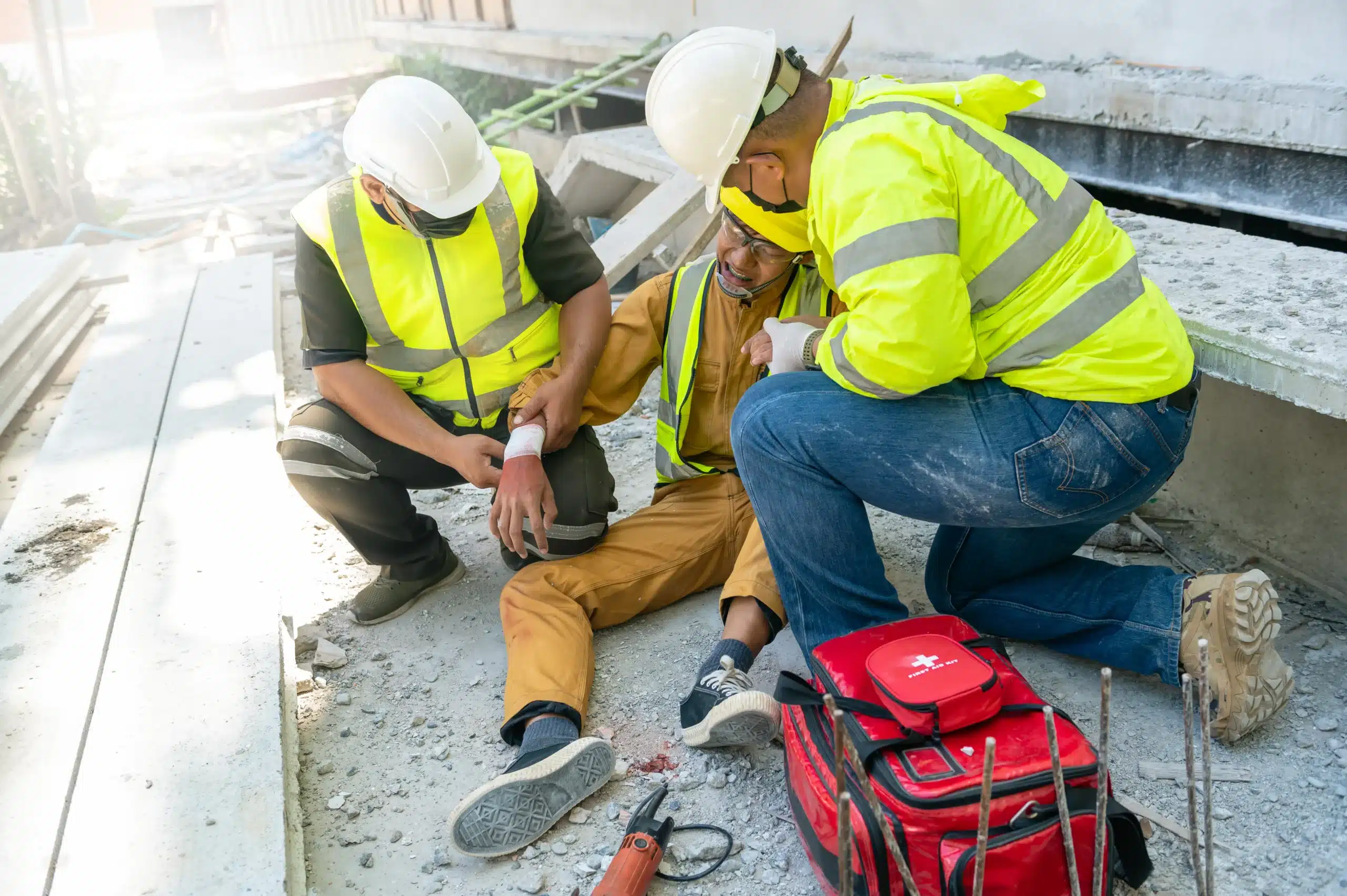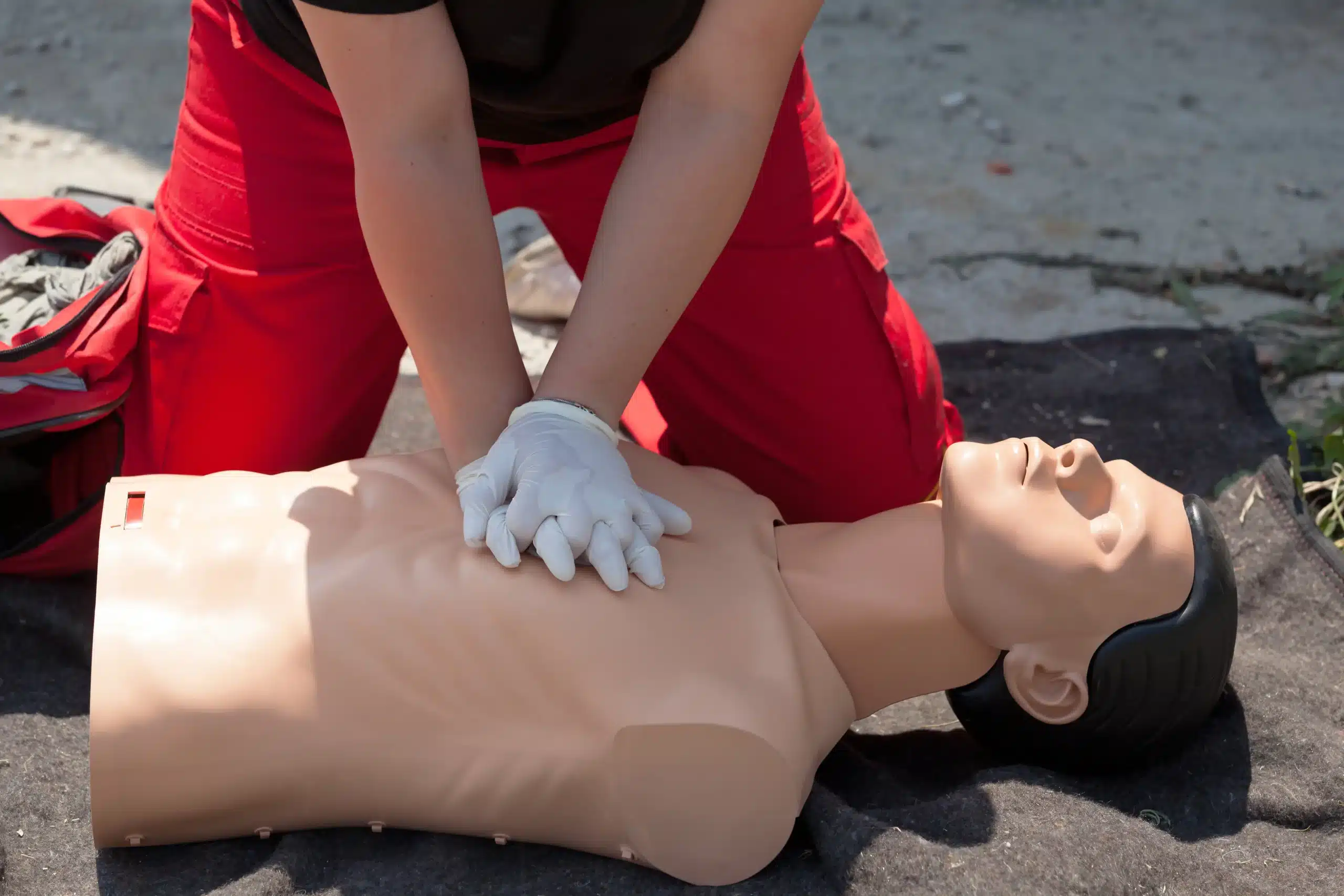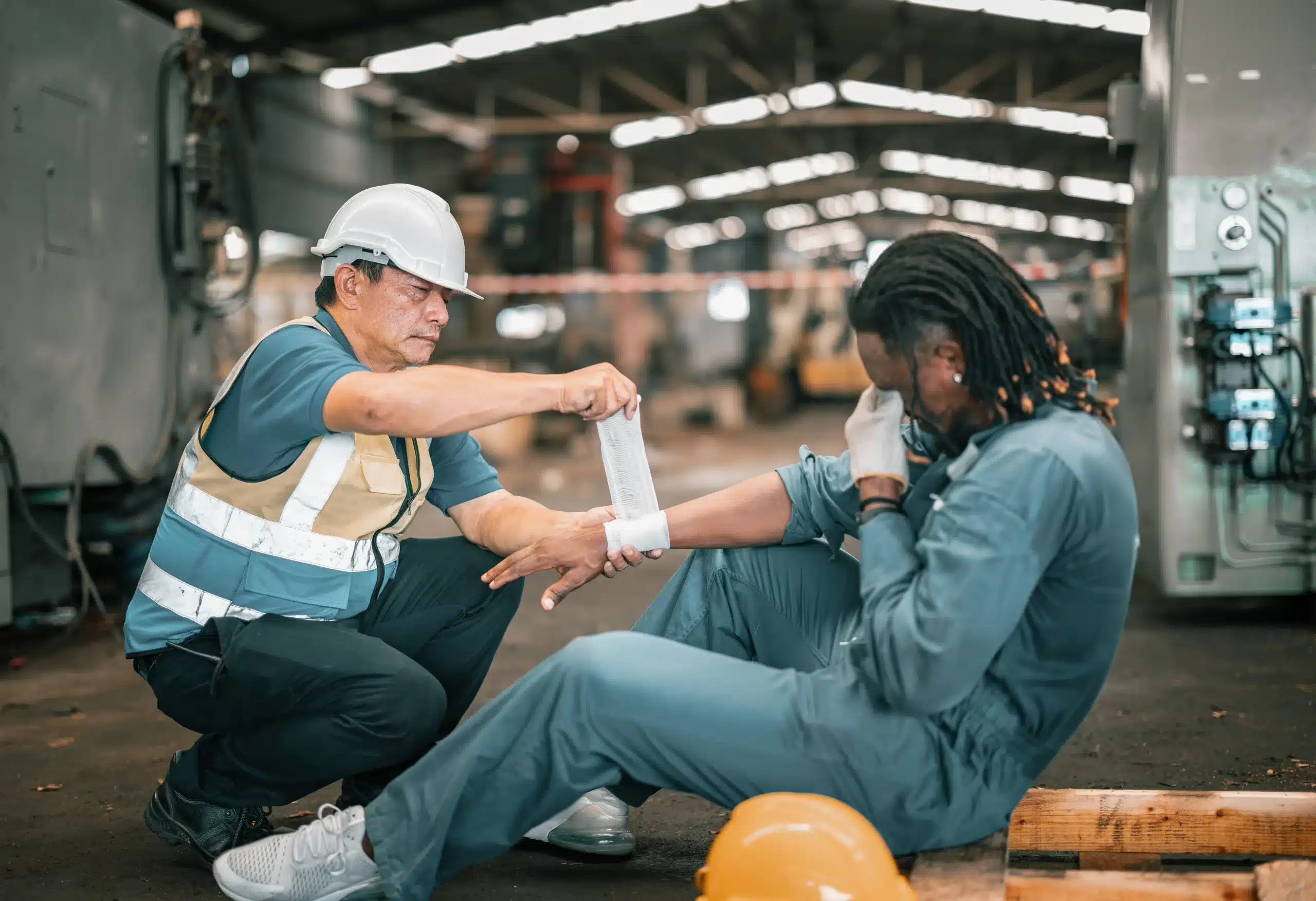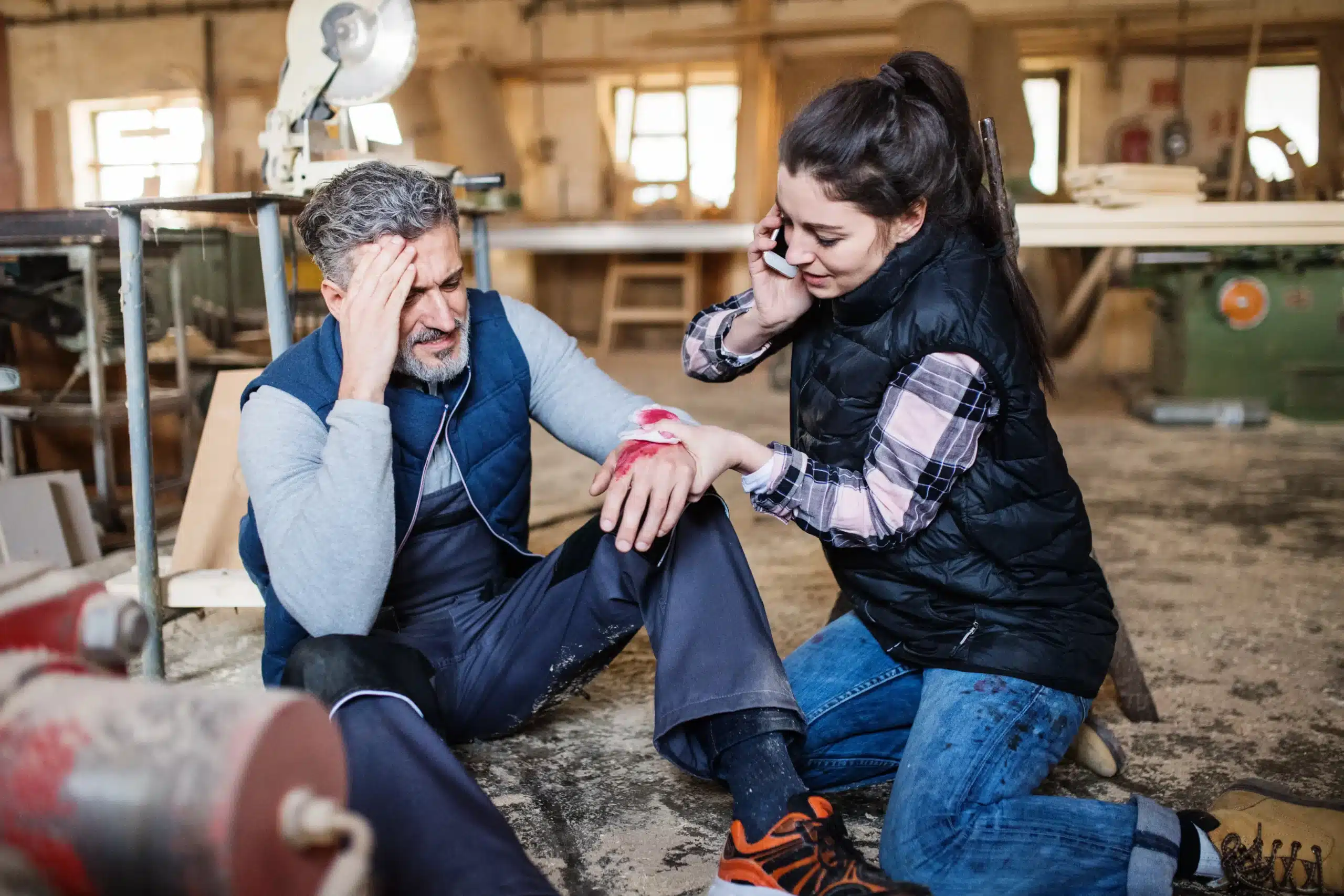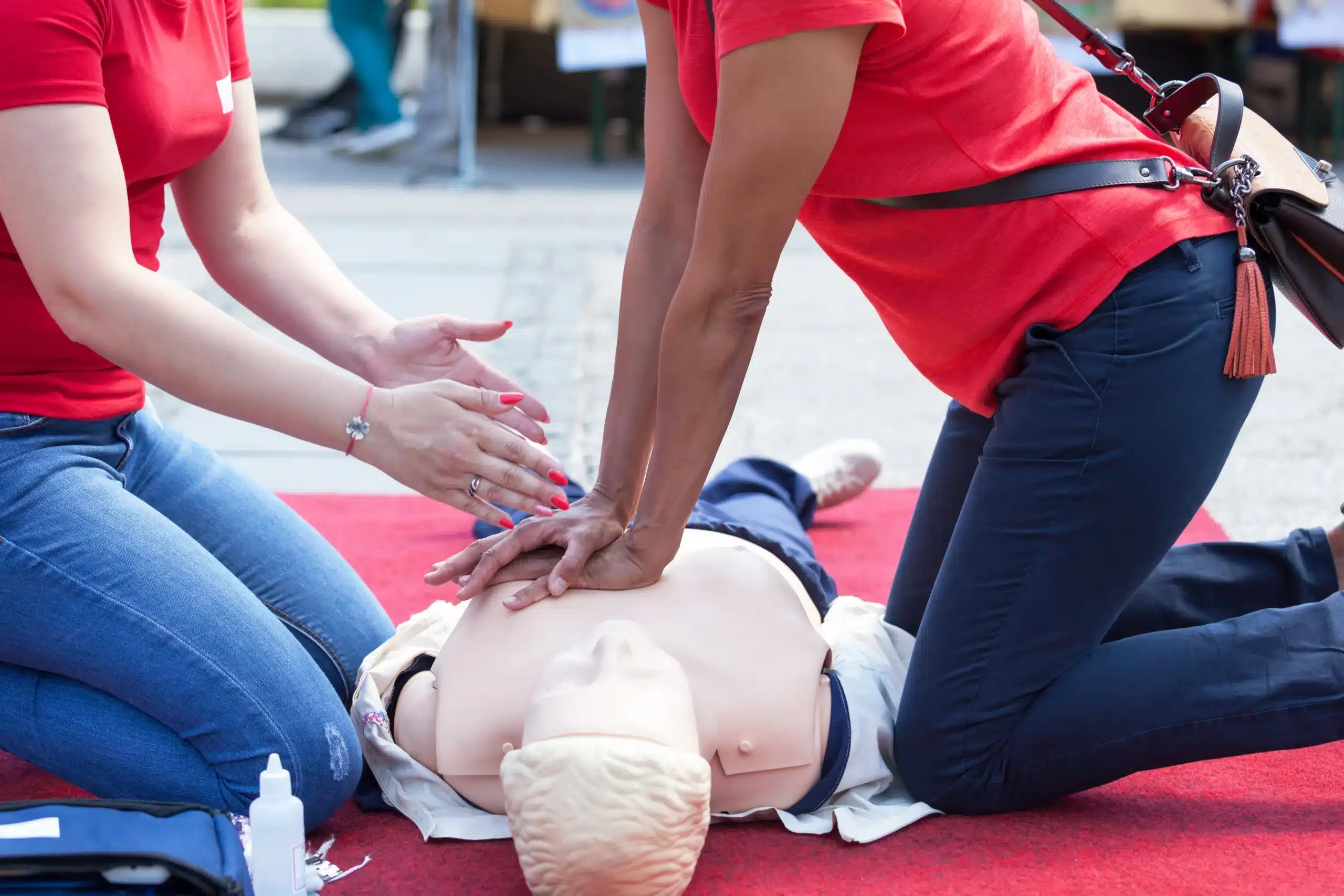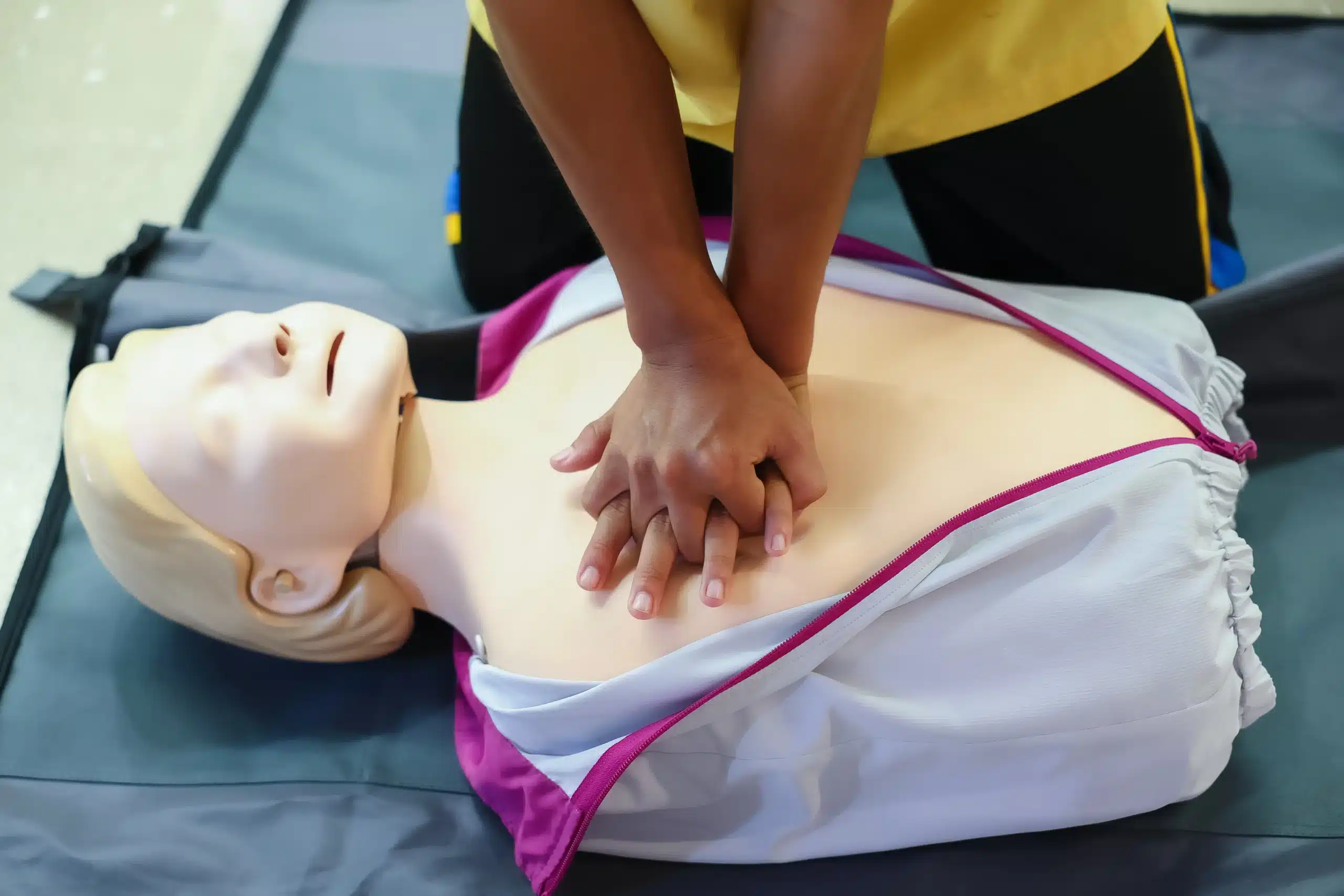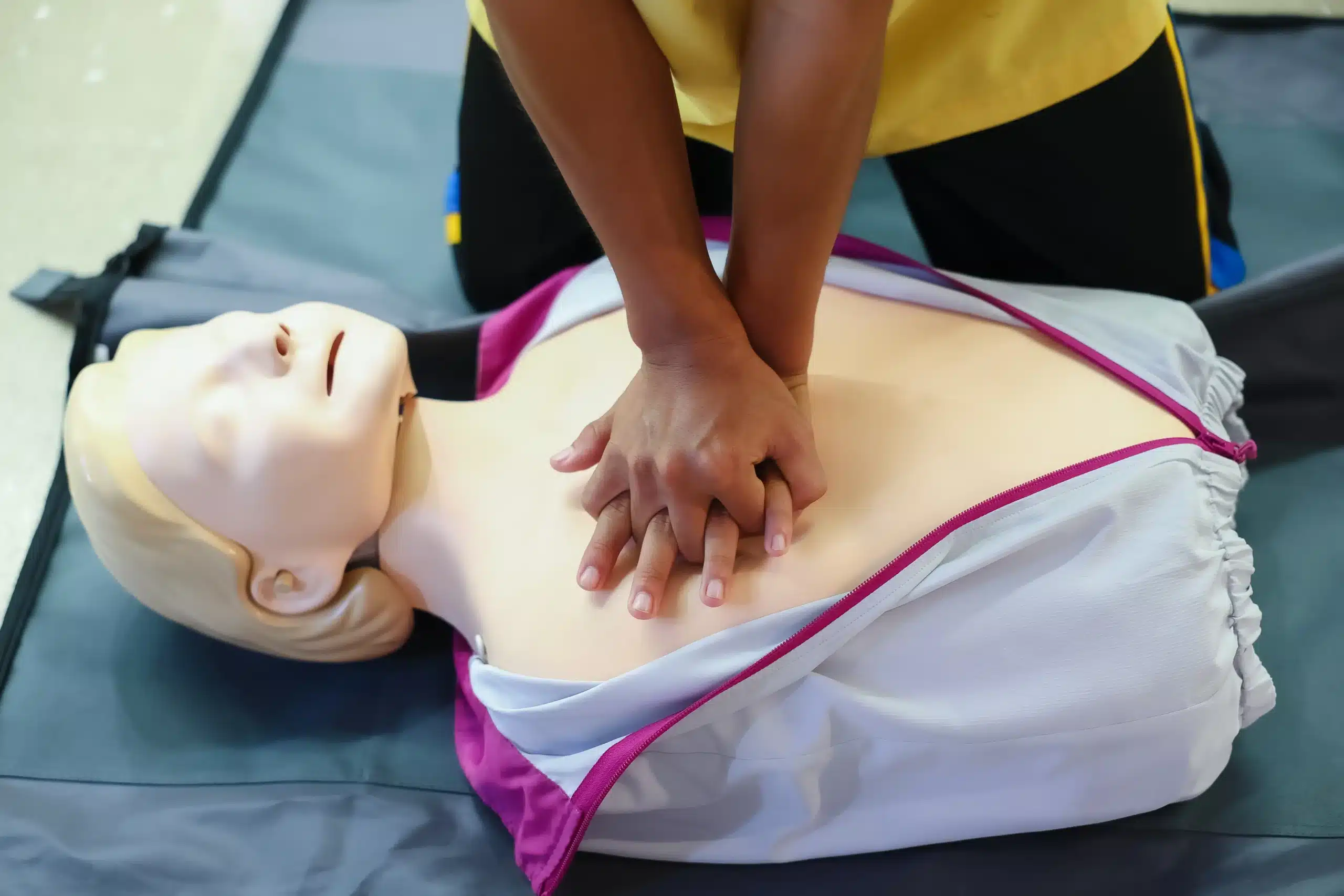Life has a way of throwing curveballs, and sometimes, those curveballs require us to be ready to step in and help. Knowing CPR can equip you to handle those unexpected moments when someone needs immediate medical assistance. But CPR skills can fade over time, which is why renewing your certification is so crucial. This guide is your go-to resource for CPR renewal in San Jose. We’ll explore the importance of staying current, the different renewal options available, and how to choose the right course for your needs. We’ll also delve into the costs, the renewal process, and tips for maintaining your skills long after you’ve completed your course.
Key Takeaways
- Stay current with the latest guidelines: CPR techniques can change, so renewing your certification ensures you’re always prepared to respond effectively in an emergency. Find a course that fits your schedule and preferred learning style.
- Choose a course that meets your needs: Consider factors like location, cost, and format (in-person, online, or blended) when selecting a CPR renewal course in San Jose. Reputable providers like Safety Training Seminars and the American Red Cross offer various options.
- Regular CPR renewal is invaluable: Maintaining your certification demonstrates your commitment to helping others and provides peace of mind knowing you have the skills to potentially save a life. It’s an investment in your preparedness and the well-being of your community.
What is CPR Renewal?
CPR renewal is a refresher course for individuals whose CPR certification is about to expire. Your certification is typically valid for two years. To stay current, you need to renew within a specific timeframe, usually within 30 days of the expiration date. If you miss that window, you’ll likely have to take a full CPR recertification course again. Think of it like renewing your driver’s license—it’s essential to keep it valid.
Why Renew Your CPR Certification?
Staying up-to-date with your CPR skills is crucial. First, it demonstrates your commitment to helping others in emergencies. It also ensures you’re prepared to respond effectively if someone experiences cardiac arrest. Plus, CPR guidelines and techniques can change, so renewing your certification keeps your knowledge current. Regular renewal helps you maintain those skills and react confidently under pressure.
What Will You Learn in a CPR Renewal Course?
A CPR renewal course covers the essential skills and knowledge needed to administer CPR effectively. You’ll review the latest CPR guidelines from the American Heart Association, practice chest compressions and rescue breaths, and learn how to use an AED. Many courses also include instruction on choking relief for adults, children, and infants. It’s a comprehensive refresher to keep your skills sharp. For those looking for CPR renewal in San Jose, BLS renewal courses offer a convenient option.
Common CPR Renewal Myths
One common misconception is that online-only CPR certifications are sufficient. While convenient, these certifications often don’t meet requirements for many employers, especially those following OSHA regulations. Many healthcare employers require certifications from established organizations like the American Heart Association or the American Red Cross, which typically involve in-person training. So, before choosing an online-only option, check if it meets your specific needs.
Where to Renew Your CPR Certification in San Jose
Finding the right CPR renewal course in San Jose is easier than you think. Several reputable organizations offer convenient options to fit your schedule and learning style. Here are a few places to check out:
Safety Training Seminars
Safety Training Seminars, an AHA Training Center, offers a range of CPR and safety training courses, including BLS renewal in San Jose. They’re known for their excellent customer service and low price guarantee, making them a popular choice. Plus, they serve several nearby areas like Santa Clara and Sunnyvale. You can find their training center in the Willow Glen neighborhood.
American Red Cross
The American Red Cross is a trusted name in emergency preparedness and offers CPR and first aid courses. Their San Jose location provides in-person BLS training for both initial certification and renewal. Check their website for course schedules and availability.
American Heart Association
While the AHA doesn’t directly teach courses, they set the standards for CPR training. You can find AHA-certified courses through various training centers, including Safety Training Seminars and other providers listed here. Both the BLS Provider and BLS Renewal courses result in the same AHA certification. If you’re a healthcare provider needing to renew your RQI, Safety Training Seminars also offers the American Heart Association RQI program. They also offer EMSA Health, Safety, and Lead Poisoning training for California childcare providers.
CPR Training Center
The CPR Training Center in San Jose offers a variety of AHA-certified CPR and first aid courses, including BLS renewal. They focus on the latest guidelines and techniques, ensuring your skills are up-to-date.
ProCPR
ProCPR offers CPR and first aid training courses in various formats, including online options. This flexibility is helpful if you have a busy schedule or prefer self-paced learning. Check their website for courses offered in the San Jose area.
Choosing the Right CPR Renewal Format
Renewing your CPR certification doesn’t have to be a chore. With several different formats available, you can choose the learning style that best suits your needs and schedule. Let’s break down the pros and cons of in-person training, online courses, and blended learning.
In-Person Training
For those who thrive in a hands-on environment, in-person training offers a classic, interactive learning experience. You’ll benefit from direct interaction with a certified instructor, giving you real-time feedback and personalized guidance. Plus, practicing skills alongside your peers builds camaraderie and reinforces learning. In San Jose, in-person BLS renewal typically costs around $70 for a standard BLS CPR Provider class, which covers instruction, skills practice, and course materials. Safety Training Seminars offers BLS renewal courses in San Jose designed with small class sizes for a more personalized learning experience. However, in-person classes require you to adhere to a fixed schedule and commute to a specific location, which can be a challenge for busy professionals. Check out our BLS courses in San Jose to find a class time that works for you.
Online Courses
Online CPR renewal courses offer unparalleled flexibility. Learn at your own pace, anytime, anywhere, fitting the training around your busy schedule. These courses often incorporate interactive elements like videos and simulations to keep you engaged. CPR renewal costs vary depending on the provider and the type of certification. While online courses offer convenience, they may not provide the same level of hands-on practice as in-person training. This is something to consider, especially if you’re a healthcare provider or frequently use your CPR skills. For healthcare professionals looking for online renewal options, our RQI program might be a good fit.
Blended Learning
Blended learning combines the best of both worlds. You’ll complete a portion of the coursework online, enjoying the flexibility of self-paced learning, and then attend an in-person skills session to practice and demonstrate your proficiency. This format offers a good balance between convenience and hands-on training. If you’re looking for blended learning options, explore various training providers in San Jose. The San Jose CPR Training Center offers various AHA-certified CPR and first aid courses, including BLS renewal courses, and may have blended learning options available. For childcare providers in California, our EMSA Health, Safety, and Lead Poisoning course offers a blended learning format. Be sure to check with different providers to find the format and schedule that works best for you. Don’t forget to ask about our low price guarantee!
CPR Renewal Costs & Value in San Jose
So, you’re ready to renew your CPR certification in San Jose—smart move! But naturally, you’re probably wondering about the cost. Let’s break down CPR renewal costs in San Jose and look at the value you get for your investment.
Course Fees & Expenses
In San Jose, BLS renewal typically costs around $70 for a standard BLS CPR Provider class. This fee usually covers instruction, skills practice, and course materials. Keep in mind that BLS certification courses can range from $70 to $150, depending on several factors. These can include whether you choose in-person training, online learning, or a blended learning format. The training provider and included materials can also influence the final price. It pays to do a little comparison shopping to find the best fit for your budget. We offer a low price guarantee to help make your decision easier.
Discounts & Promotions
Want to save some money on your CPR renewal? Look for discounts and promotions offered by various training centers. Many providers offer discounts for group registrations, students, or returning customers. Check if your employer offers any reimbursement programs for professional development courses like CPR renewal. You might be surprised at the savings you can find! For affordable options, check out our CPR and safety training courses.
Benefits of Maintaining Your Certification
Beyond the dollar amount, consider the immense value of a current CPR certification. Renewing your certification means you’re prepared to respond confidently in an emergency. Think of the peace of mind that comes with knowing you have the skills to potentially save a life. Plus, maintaining your certification demonstrates your commitment to professional growth, especially in healthcare settings. At Safety Training Seminars, we offer a comprehensive selection of American Heart Association (AHA) courses, including BLS, ACLS, PALS, CPR, and First Aid. Our focus is on convenient daily classes in San Jose and surrounding areas, making renewing your certifications as easy as possible. We also keep our class sizes small for a more personalized learning experience. We even offer courses specifically for California childcare providers covering health, safety, and lead poisoning.
What to Expect During CPR Renewal
Renewing your CPR certification is straightforward. Here’s what you can expect:
Course Content & Guidelines
CPR renewal courses in San Jose adhere to the latest guidelines from either the American Heart Association (AHA) or the American Red Cross. Expect a review of core CPR principles, including chest compressions, rescue breaths, and AED use. At our San Jose location, Safety Training Seminars offers a variety of AHA-certified courses, from basic CPR to advanced life support. We also offer the American Heart Association RQI program for healthcare professionals.
Time Commitment & Duration
CPR renewal courses refresh your skills efficiently. A typical BLS renewal course takes a few hours. Check our BLS course schedule for available dates and times in Willow Glen. Our low price guarantee ensures you receive excellent training at the best price. We also offer EMSA Health and Safety training, including instruction on lead poisoning prevention, designed for California childcare providers.
Assessment & Certification
We’ll assess your practical skills and knowledge throughout the renewal course. Successful completion earns you the same certification as the initial BLS Provider course, keeping your credentials current and recognized.
Hands-on Practice & Skill Refreshment
Hands-on practice is crucial for CPR renewal. You’ll practice chest compressions, rescue breaths, and AED use on mannequins with guidance from our certified instructors. This hands-on training builds confidence and reinforces essential skills for real-life emergencies.
How Long is CPR Certification Valid?
CPR certification generally lasts for two years. This timeframe is standard across most certifying organizations, including the American Heart Association and the American Red Cross. Why the two-year mark? Studies show CPR skills and knowledge retention decline over time. Regular renewal ensures you stay sharp and confident in your ability to perform CPR effectively. For healthcare providers following the American Heart Association’s RQI program, requirements may differ.
When to Renew
It’s best to renew your CPR certification before it expires. Aim to complete your renewal course within the two-year timeframe. Some organizations allow a short grace period, often around 30 days after expiration, for renewal. However, if you let your certification lapse beyond that, you’ll likely need to retake the entire course rather than just a refresher. Check with your certifying organization, such as the American Heart Association, for specific guidelines. Staying current keeps your skills fresh and ensures you’re always prepared to respond to emergencies.
Consequences of an Expired Certification
While there aren’t legal ramifications for having an expired CPR certification for most individuals, it does impact your preparedness. Holding a valid certification demonstrates your proficiency and commitment to maintaining up-to-date skills. For healthcare professionals, maintaining current certifications is often a job requirement and may be tied to licensing or employment. Beyond professional obligations, keeping your CPR skills sharp through regular renewal ensures you can confidently and effectively administer aid when it matters most. Remember, CPR skills can begin to degrade within a year of certification, highlighting the importance of staying current. Our low price guarantee makes staying up-to-date affordable and accessible.
Make the Most of Your CPR Renewal
Getting ready for your CPR renewal? Here’s how to make the process smooth and effective, so you feel confident using your skills.
Prepare for Your Course
Before your class, confirm all the course details and requirements. In San Jose, BLS renewal typically costs around $70 for a standard BLS CPR Provider class, covering instruction, skills practice, and course materials. Check with your chosen provider, like Safety Training Seminars, for their latest pricing and any discounts. Review the materials you received when you first got certified. This refresher will help you get the most out of your renewal course. Knowing the basics beforehand lets you focus on the updates and changes since your last certification. Dress comfortably, as you’ll be practicing hands-on skills.
Learn Effectively
In-person CPR renewal classes offer hands-on training with certified instructors. This format allows for personalized feedback and direct interaction, which can be incredibly valuable. Safety Training Seminars, a top-rated provider in San Jose, offers this type of training. During your course, actively participate. Ask questions, engage in discussions, and take advantage of the opportunity to practice. Don’t hesitate to ask the instructor for clarification on anything you’re unsure about. The more engaged you are, the more you’ll retain.
Maintain Your Skills After Renewal
Your CPR skills are like any other—they need regular practice. After your renewal, incorporate regular refreshers into your routine. Even quick reviews of the key steps can make a big difference. Understanding the requirements will help you choose the right course for your needs. Safety Training Seminars provides various renewal options, including the RQI program for healthcare providers, and standard CPR and BLS renewal courses. Staying up-to-date on the latest guidelines is also important. Check the American Heart Association website periodically for any updates or changes to CPR procedures. This ongoing maintenance ensures you’re always prepared to respond effectively in an emergency.
Related Articles
- Why CPR is Crucial in Saving Lives
- CPR Classes in San Jose: Your Complete Guide – San Jose CPR Classes
- 12 Common CPR Myths Debunked – San Jose CPR Classes
- CPR Training in San Jose: Find the Right Course – San Jose CPR Classes
Frequently Asked Questions
How often do I need to renew my CPR certification? CPR certifications are typically valid for two years. Plan on taking a renewal course within that timeframe to keep your skills current and your certification valid.
What’s the difference between CPR renewal and recertification? Renewal is a refresher course for individuals whose certification is about to expire or has recently expired. Recertification is required if your certification has been expired for an extended period, and it involves taking the full course again.
Are online-only CPR renewal courses accepted? While online-only courses offer convenience, they might not meet the requirements of all employers, especially in healthcare settings. Many organizations prefer certifications from established institutions like the American Heart Association or the American Red Cross, which often involve in-person skills assessment. Always check with your employer or licensing board to confirm their specific requirements.
What’s the typical cost of CPR renewal in San Jose? CPR renewal courses in San Jose generally cost around $70, but prices can vary based on the training provider, course format (in-person, online, or blended), and included materials. Look for discounts or promotions that may be available.
How can I find a CPR renewal course near me? Several organizations offer CPR renewal courses in San Jose. Check with local training centers, the American Red Cross, or the American Heart Association website to find a course that fits your schedule and location preferences. Safety Training Seminars, an AHA Training Center, is one option located in San Jose, offering various CPR and safety training courses.


